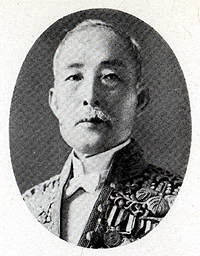 W
WBak Gyusu was a scholar-bureaucrat, teacher, politician, and a diplomat of the Joseon Dynasty. He was known as a pioneer of the enlightenment group. Bak Gyusu was the grandson of Park Ji-won, the great Silhak scholar of the Joseon. He was also known by the names of Hwanjae, Hwanjae en Heonjae, and Hwanjaegeosa.
 W
WBak Jega was a scholar of school of Practical learning (Silhak) in the late Joseon Dynasty. He was a student of Park Ji-won.
 W
WBak Jeongyang(korean:박정양, hanja:朴定陽, 1841–1904) was a Korean Joseon dynasty politician and edification activist. a member of independence club(독립협회;獨立協會) and People's joint association(만민공동회;萬民共同會). also a member for Party of Kaehwa, his family was Pannam Park clan. He is also the father of famous Korean play writer Park Seung-hee (1901-1964). Bak Jeongyang was dispatched by Korean King to be the ambassador to the United States in 1887. He went to United States and caused an international outcry from the Chinese Empire which viewed Korea as a vassal state. After many years' conflict, Park was punished and was pushed aside. This episode reveals Korea's desire for complete independence, but demonstrates China's plan to stick to the traditional tributary tie. Park became a victim of this conflict. Park was also the author of a few books.
 W
WBak Jungyang was a Korean Joseon and Japanese-ruled Korean bureaucrat, politician, liberal and social activist. He demolished the castle of Daegueup and the Old Gyungsangdo Provincial Office, and contributed to city planning and road maintenance in Daegu. He also participated in the destruction of the Castle of Jinju. He was a conscientious Japanese colonial supporter with pro-Japanese group ideology as well as an advocate for civil rights.
 W
WBruce Cumings is an American historian of East Asia, professor, lecturer and author. He is the Gustavus F. and Ann M. Swift Distinguished Service Professor in History, and the former chair of the history department at the University of Chicago. He specializes in modern Korean history and contemporary international relations.
 W
WGim Jangsaeng was a Neo-Confucian scholar, politician, educator, and writer of Korea's Joseon period.
 W
WGim Jip (1574–1656) was a Korean Joseon Neo-Confucian scholar, politician, educator and writer. He was also the teacher of Song Si-yeol and Song Jun-gil, great Korean Neo-Confucian scholars.
 W
WHa Ryun, also spelled Ha Yun, was a Joseon Dynasty politician and Neo-Confucian scholar, educator, and writer. He served as Prime Minister or Chief State Councillor during the reign of King Taejong from 1408 to 1409, from 1409 to 1412 and again from 1414–1415.
 W
WJeong In-ji was a Korean Neo-Confucian scholar, historian who served as Vice Minister of Education or Deputy Chief Scholar during the reign of King Sejong the Great, Minister of Rites during the reign of King Munjong and Danjong, Left or Second State Councillor from 1453 to 1455 during the reign of King Danjong, and Chief State Councillor from 1455 to 1458 during the reign of King Sejo. He was nicknamed Hagyeokjae (학역재).
 W
WSin Chaeho, or Shin Chae-ho (1880–1936), was a Korean independence activist, historian, anarchist, nationalist, and a founder of Korean ethnic nationalist historiography. He is held in high esteem in both North and South Korea. Two of his works, A New Reading of History, written in 1908, and The Early History of Joseon, published in 1931, are considered key works of nationalist historiography in modern Korea. He argued that modern Koreans and the people of Manchuria were of a single race which has an ancestral claim to both Korea and Manchuria, Shin also studied Korean mythology. During his exile in China, Shin joined the Eastern Anarchist Association and wrote anti-imperialist and pro-independence articles in various outlets; his anarchist activities lead to his arrest and subsequent death in prison, February 21, 1936.
 W
WOdd Arne Westad FBA is a Norwegian historian specializing in the Cold War and contemporary East Asian history. He is the Elihu Professor of History and Global Affairs at Yale University, where he teaches in the Yale History Department and in the Jackson Institute of Global Affairs. Previously, Westad held the S.T. Lee Chair of US-Asia Relations at Harvard University, teaching in the John F. Kennedy School of Government. Westad has also taught at the London School of Economics, where he served as director of LSE IDEAS. In the spring semester 2019 Westad was Boeing Company Chair in International Relations at Schwarzman College, Tsinghua University.
 W
WYi Pyong-do was one of the influential Korean historians but he was also associated with the Japanese view of Korean history.